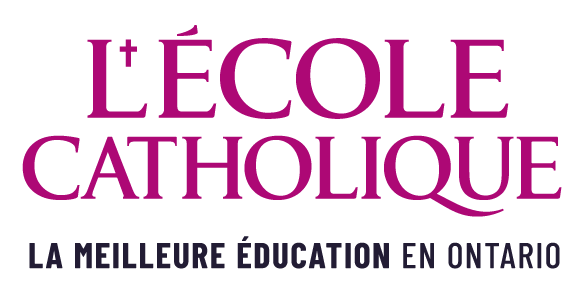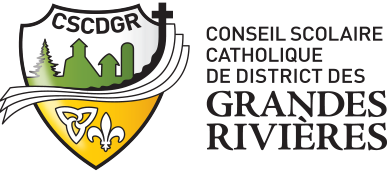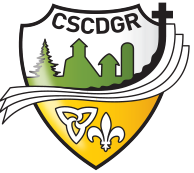
Indigenous Education in Timmins, Temiskaming Shores and Surrounding Areas
At the Conseil scolaire catholique de district des Grandes Rivières (CSCDGR), we are committed to enhancing accessibility for Indigenous students through various programs and initiatives. We support Indigenous education in Timmins, Temiskaming Shores, Iroquois Falls, Cochrane, Kapuskasing, Hearst and other areas by focusing on the well-being, success and achievements of our Indigenous students. In addition to that, we make sure our programs adhere to the province's vision for Indigenous education.
Our programs support Indigenous education in an informed manner and we make sure they don't reinforce outdated notions. If you'd like to know more about Indigenous education in Timmins and other areas, please reach out.
First Nations, Métis and Inuit
Every single one of our schools is committed to offer hospitality and support to students with an indigenous heritage. Our schools have access to various resources contributing to the development of an appreciation of the cultures, traditions and outlooks of the First Nations, Métis and Inuit. Our staff members take part in workshops to help raise awareness of all different cultures including the indigenous cultures.
In addition, we strive to create partnership opportunities with various organizations to offer the best services available to our indigenous families.
The term "Indigenous" refers to the original inhabitants of Canada and their descendants. According to the Constitution Act, 1982, Aboriginal peoples of Canada are made up of three nations: Métis, Inuit and First Nations. Aboriginal ancestry, on the other hand, refers to any person who has an indigenous heritage in their family tree and who identifies with indigenous culture.
Self-identification
Indigenous self-identification is voluntary and confidential. It is an opportunity for students and families to proclaim their First Nations, Métis or Inuit heritage. It is not required to have an Indian Status card, a Métis citizenship card or an Inuit identification number to self-identify. All you need are indigenous roots.
Self-identification contributed to the student's identity development as a French-speaking indigenous individual. It helps create an inclusive learning environment where the cultures, the traditions and the outlooks of indigenous peoples are present and valued.
Our school board encourages its students as well as its staff members to self-identify. Doing so is as simple as filling in a short form. Over 340 students with an indigenous heritage have self-identified so far.
Why Self-identify?
The data collected is analysed and used as a whole, not individually, to:
- Improve the education of students, indigenous or not;
- Increase the success rate and well-being of all students, including First Nations, Métis and Inuit students;
- Improve the access to cultural programs, services and support;
- Raise awareness regarding the diverse needs of First Nations, Métis and Inuit students;
- Increase the graduation rate, the access to information about postsecondary options (work, apprenticeship, college, university and community integration) and the available financial support;
- Improve, develop and implement learning programs and support services for self-identified students, staff members and school counsellors;
- Meet the ministerial expectation of employing both indigenous and non-indigenous teachers.
Privacy of information
In accordance with the Freedom of Information and Protection of Privacy Act, the Conseil scolaire catholique de district des Grandes Rivières is committed to analyse the data collected in aggregate form to improve learning opportunities for all students. This information will be shared with the Ministry of Education and the Education Quality and Accountability Office (EQAO), who will make these results public.
or more information, please refer to our Student self-identification Policy (non accessible PDF, in French)
If you have a question or would like additional information, please contact Mrs. Angèle Beaudry, First Nations, Métis and Inuit Affairs manager:
- Phone: 705 267-1421, extension 204
- Email: angele.beaudry@cscdgr.education
Enhancing Learning
At our centres, we aim to create a culturally safe environment for students from Indigenous backgrounds. Our learning environment is respectful and makes our students feel safe and proud about their heritage. We provide them with a space where they feel encouraged to voice their opinions and ideas. Our team places special emphasis on communicating respectfully and authentically on topics that might be sensitive. Rest assured, we take steps in ensuring our Indigenous students feel safe, comfortable and heard.
If you'd like to know more about our Indigenous education in Timmins, Temiskaming Shores, Iroquois Falls, Cochrane, Kapuskasing, Hearst or other regions, please contact us today.
Aboriginal Education Committee
All the schools at the Conseil scolaire catholique de district des Grandes Rivières, work closely with the Indigenous Education Committee. We pay special attention to Indigenous education priorities and include the experiences and views of students, parents. We collaborate with Indigenous community partners to provide authentic programs and experiences. The objective of our efforts is to ensure that the Board is always aware of the needs of our Indigenous students are met in all ways. We work in tandem with the committee to:
- Provide support to students
- Provide support to the staff
- Keep a close eye on data and developments
- Enhance engagement and awareness
- Bolster Indigenous student achievements
We try to ensure that our initiatives aimed at strengthening Indigenous education are as authentic as possible. Please contact us if you'd like to know more about our Indigenous education in Timmins , Temiskaming Shores, Iroquois Falls, Cochrane, Kapuskasing, Hearst or other regions. We're always available to address your queries and help you make informed decisions regarding your child's education and learning.
Initiatives
As part of our Indigenous education in Timmins, Temiskaming Shores, Iroquois Falls, Cochrane, Kapuskasing and Hearst, we continue to embark on countless initiatives. Our actions are moulded by the Indigenous Education Strategy (2007), the Implementation Plan (2014), the educational resources – scope and sequencing of expectations and learning content from kindergarten to Grade 8 as well as from Grades 9 to 12 and the Truth and Reconciliation Commission of Canada's Calls to Action on Education.
For instance, at our School Board, every year, the third week of April is Indigenous Peoples Recognition Week. Please contact us to learn more about what we do to include and to support Aboriginal education at our education centres and our schools.
Enhancing Accessibility
We provide a conducive environment for Indigenous education in Timmins, Temiskaming Shores, Iroquois Falls,
Cochrane, Kapuskasing, Hearst and other areas through numerous programs.


